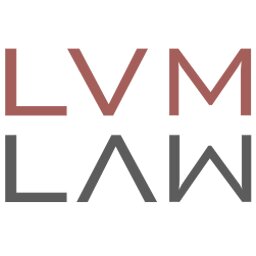Best Biotechnology Lawyers in City Hall
Share your needs with us, get contacted by law firms.
Free. Takes 2 min.
List of the best lawyers in City Hall, Singapore
About Biotechnology Law in City Hall, Singapore:
Biotechnology is a rapidly growing industry in Singapore, especially in City Hall. With advancements in technology and research, legal issues often arise in this field. Understanding the laws and regulations surrounding biotechnology is crucial to ensure compliance and protection of intellectual property rights.
Why You May Need a Lawyer:
There are several situations where you may require legal assistance in biotechnology, such as drafting and negotiating licensing agreements, protecting patents and trademarks, resolving disputes over ownership of inventions, and navigating regulatory compliance issues.
Local Laws Overview:
In Singapore, biotechnology falls under the purview of various laws and regulations, including the Biological Agents and Toxins Act, the Intellectual Property (IP) laws, and the Personal Data Protection Act. Understanding these laws is essential to ensure lawful operation within the industry.
Frequently Asked Questions:
1. What types of biotechnology activities are regulated in Singapore?
In Singapore, biotechnology activities such as genetic modification, cloning, and stem cell research are regulated to ensure safety, ethical standards, and compliance with licensing requirements.
2. How can I protect my biotechnology inventions in Singapore?
You can protect your biotechnology inventions through patents, trademarks, and copyrights. It is advisable to seek legal advice to navigate the complex process of intellectual property protection.
3. What are the key regulations for biotechnology research in Singapore?
Key regulations for biotechnology research in Singapore include obtaining permits from relevant authorities, adhering to biosafety guidelines, and complying with ethical standards set forth by the authorities.
4. What are the implications of breaching biotechnology laws in Singapore?
Breaching biotechnology laws in Singapore can lead to penalties, fines, prosecution, and even imprisonment. It is crucial to seek legal advice to avoid legal consequences.
5. How can a lawyer help me with biotechnology disputes?
A lawyer can assist you in resolving biotechnology disputes through negotiation, mediation, arbitration, or litigation. They can also provide legal advice on the best course of action to protect your interests.
6. Can I transfer my biotechnology patents to another party in Singapore?
Yes, you can transfer your biotechnology patents to another party through licensing agreements, assignments, or other legal mechanisms. It is advisable to seek legal advice to ensure a smooth transfer process.
7. What are the data protection requirements for biotechnology companies in Singapore?
Biotechnology companies in Singapore need to comply with the Personal Data Protection Act, which sets out requirements for the collection, use, and disclosure of personal data. Non-compliance can result in penalties and legal action.
8. How can I ensure compliance with biotechnology regulations in Singapore?
To ensure compliance with biotechnology regulations in Singapore, it is advisable to stay informed about the latest laws and regulations, seek legal advice when necessary, and maintain accurate records of your biotechnology activities.
9. Are there any specific funding opportunities for biotechnology startups in Singapore?
Yes, Singapore offers various funding opportunities and grants for biotechnology startups through government agencies such as A*STAR, SPRING Singapore, and the National Research Foundation. Seeking legal advice can help you navigate the funding application process effectively.
10. How can I find a reliable biotechnology lawyer in Singapore?
You can find a reliable biotechnology lawyer in Singapore by asking for recommendations, researching online, and contacting legal associations such as the Law Society of Singapore. It is essential to choose a lawyer with experience and expertise in biotechnology law.
Additional Resources:
For more information on biotechnology laws and regulations in Singapore, you can visit the websites of the Singapore Ministry of Health, the Intellectual Property Office of Singapore, and the Health Sciences Authority.
Next Steps:
If you require legal assistance in biotechnology in City Hall, Singapore, it is recommended to schedule a consultation with a qualified biotechnology lawyer who can provide tailored advice and representation to address your specific legal needs.
Lawzana helps you find the best lawyers and law firms in City Hall through a curated and pre-screened list of qualified legal professionals. Our platform offers rankings and detailed profiles of attorneys and law firms, allowing you to compare based on practice areas, including Biotechnology, experience, and client feedback.
Each profile includes a description of the firm's areas of practice, client reviews, team members and partners, year of establishment, spoken languages, office locations, contact information, social media presence, and any published articles or resources. Most firms on our platform speak English and are experienced in both local and international legal matters.
Get a quote from top-rated law firms in City Hall, Singapore — quickly, securely, and without unnecessary hassle.
Disclaimer:
The information provided on this page is for general informational purposes only and does not constitute legal advice. While we strive to ensure the accuracy and relevance of the content, legal information may change over time, and interpretations of the law can vary. You should always consult with a qualified legal professional for advice specific to your situation.
We disclaim all liability for actions taken or not taken based on the content of this page. If you believe any information is incorrect or outdated, please contact us, and we will review and update it where appropriate.













